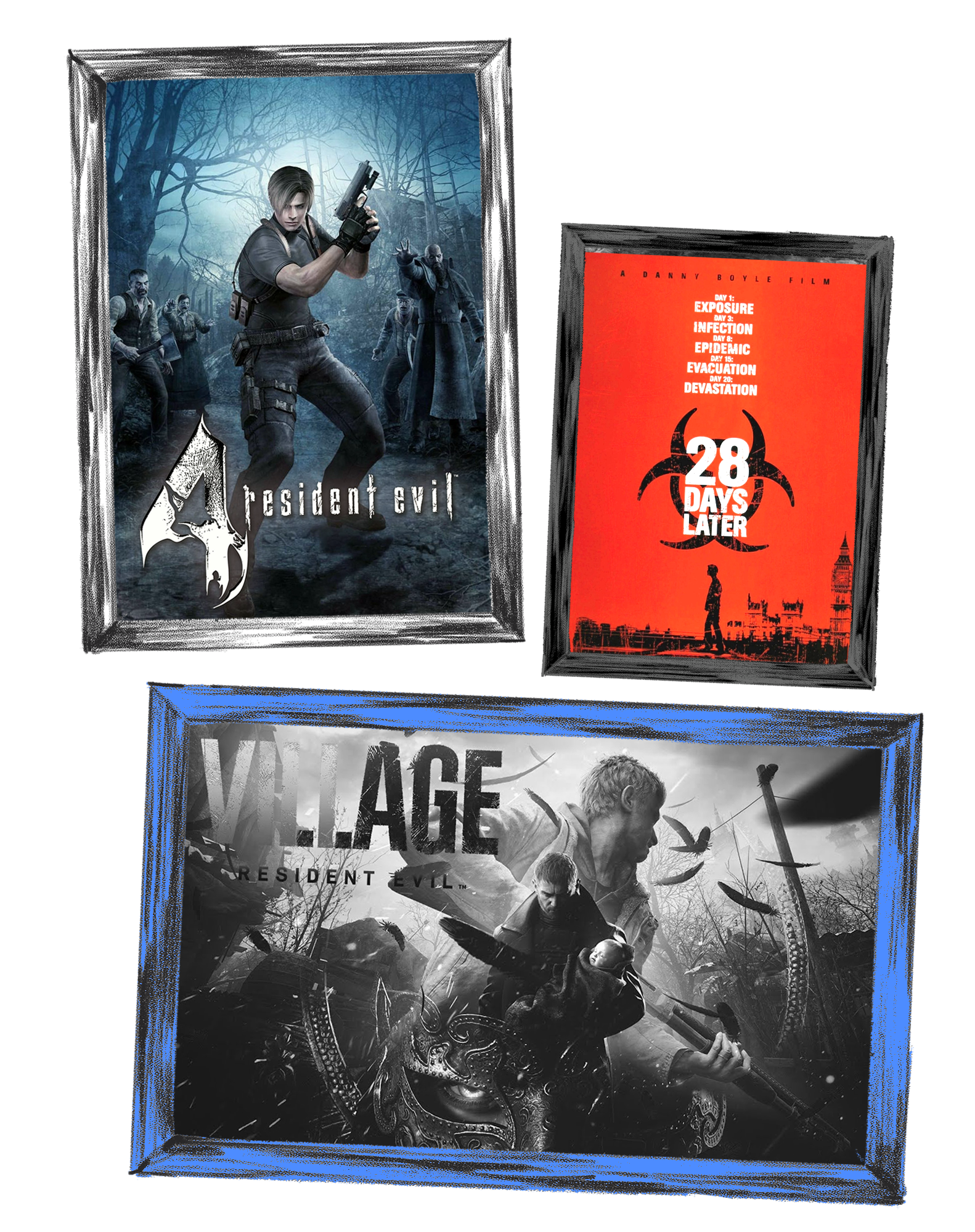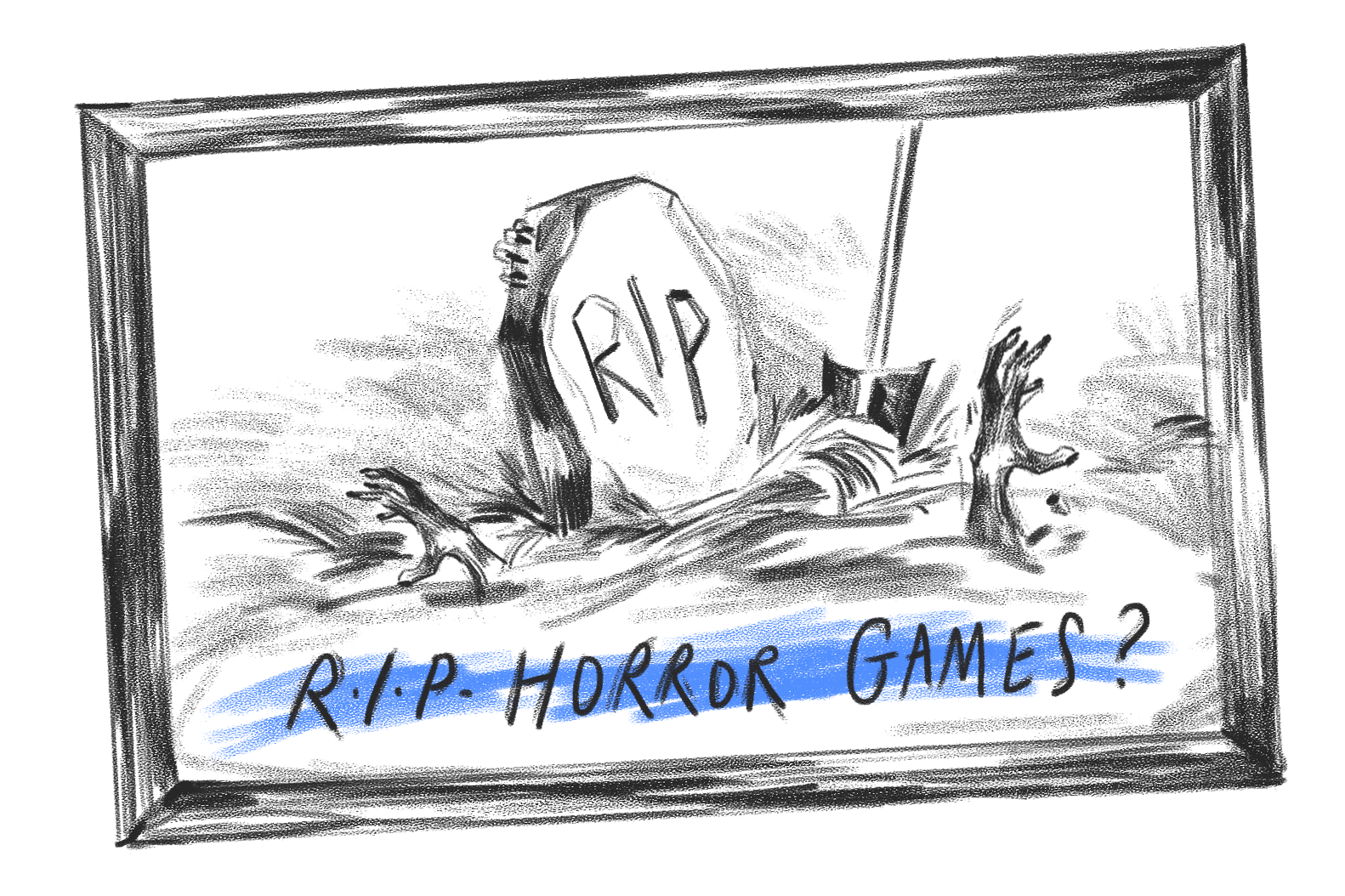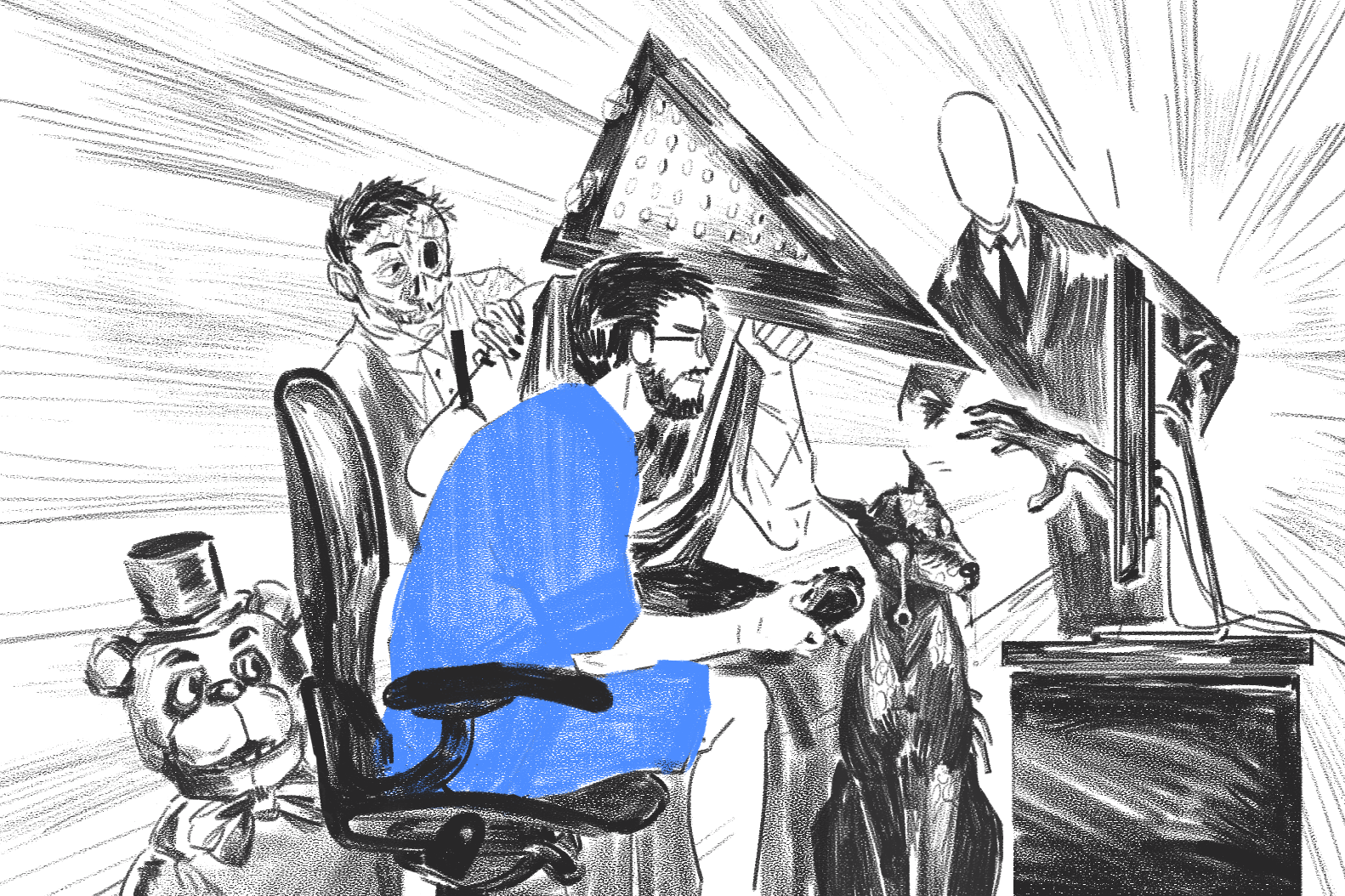I hadn’t fully realised how much of my preferences in media and entertainment had to do with horror — until I researched and reflected for this article.
Looking back, it probably started with video games.
I vaguely recall playing Alone in the Dark on my dad’s computer, and I became a big fan of Dino Crisis 1 and 2 on the PlayStation (man, the late 1990s was a great time to be a fan of dinosaurs with the Jurassic Park movies as well).
I also played Silent Hill around the same time and was intrigued but noped out real quick because that was actually terrifying.
… my answer to the “should I” question isn’t going to be as simple as “doesn’t edify, so no”.
Then in secondary school, my then cell leader let us watch RoboCop at his place followed by a screening of The Exorcism of Emily Rose. That was a thrill like no other.
After our O-Levels, my friends and I would watch dozens of horror movies over the span of a few months, but I stopped watching those kinds of movies (ghostly and gory ones) after realising that the horror binge we went on had made me a fearful person.
Zombies didn’t have that effect though, and so in junior college I continued to slay them with my friends in Left 4 Dead 2, and read and watched The Walking Dead series and other zombie movies like 28 Days Later.
For my honours thesis in university, I even wrote on zombie films. Right now? I’m about a quarter through Resident Evil Village and looking forward to Resident Evil 4 next year.

The reason I shared all that is to demonstrate my deep investment in the topic and to suggest that my answer to the “should I” question isn’t going to be as simple as “doesn’t edify, so no”.
That line of reasoning, while well-intentioned and sound on principle, can cause us to bury our consumption habits in secrecy or defiance if we haven’t taken the time to think through what we watch and play for ourselves.
Halloween can be a lot more than some annual showcase event for Christians to make choices between right or wrong. If we’re willing to face our fears, it can also be a season for deeper thinking and stronger convictions.
So this season, I’m going to talk about horror games.
It’s always been a bit of a grey area to me, and with some younger brothers in Christ on my Steam list beginning to go invisible to play games like Phasmophobia, I figured it’s time to think and talk more about this.
Layers of fear
If you’re on PC, you might know that the Steam Halloween Sale is well underway, the biggest event of the year for spooky games. There are myriad kinds of horror games being sold, which I suppose is a good segue as any to share that horror games have multiple sub-genres (thanks Wikipedia!).
There’s survival horror, first coined by the Resident Evil series. These tend to be games where the protagonist is severely disadvantaged, having to solve puzzles and problems in a dangerous setting where every encounter is a struggle to survive.
The Resident Evil 2 remake is one of the finest examples of this genre in recent years and the upcoming The Callisto Protocol looks set to be a survival horror classic too.
Then you have action horror, which is faster-paced than survival horror. The protagonist is in far greater control of his or her fate, and it plays a lot more like an action game. I’d put games like Left 4 Dead 2 in here and Resident Evil 4 through 6.
There’s also psychological horror, which is more narrative-driven and has “a particular focus on mental, emotional, and psychological states to frighten, disturb, or unsettle its audience”. Great examples include Hellblade: Senua’s Sacrifice (psychosis) and Silent Hill (grief).
Finally, there’s jump-scare horror (the Wikipedia list also has reverse horror, but I’m leaving it out for this article). These games are designed to elicit shock by springing a surprise on you when you least expect it, it’s a genre tailor-made for the reaction-heavy world of streaming.
Examples include Five Nights at Freddy’s and Slenderman.
Drawing lines
Horror is a pretty big word, so knowing the specific game’s sub-genre, what it’s about and how it plays are useful factors in determining if the game you’re thinking about is something you should or shouldn’t give time to.
A horror game might result in some believers being worse off in their faith. Such gamers would do well to steer clear. But that same game might do nothing of the sort for another believer.
In other gamers still, it might even build faith!
While a horror game is certainly not an ideal medium for spiritual growth, I don’t discount that possibility.
““I have the right to do anything,” you say — but not everything is beneficial. “I have the right to do anything” — but not everything is constructive.” (1 Corinthians 10:23)
We just have to make our choices with discernment and have a willingness to put down our preferences.
To that end, there are useful tools that can give you a snapshot of what you might expect from such media such Geeks Under Grace and Common Sense Media.
There may well be some spoilers, but you would be prevented from being surprised later on by aspects of the game that conflict with faith.
Before purchasing, playing or consuming certain media, getting our posture right is most important.
Did we take time to do our research? Are we willing to put what we love down if the Lord convicts us?

Personally speaking, there are games I won’t play.
Phasmophobia, for instance, has you play the role of a ghost-hunter who occasionally employs tools such as an ouija board.
I’m not comfortable with controlling an avatar to do something like interacting with an ouija board, since I view that as possibly opening a doorway into the occult.
Other similar games include Devour, The Watchers and Inside the Backrooms.
But I have brothers in Christ (not the younger ones I mentioned earlier) who have shared that they do not see such in-game actions as actual divination, but merely a gameplay mechanic or bits of code on a screen.
I get that. But for me, it’s just a little too much. So, I am inclined to believe their faith is simply stronger than my own and trust that they’re fully convinced about that decision.
At the end of the day, we must recognise the fact that horror games are designed around the element of fear.
I suspect that what the fear does to us, and what we do with the fear, are two factors that will vary from person to person.
These should be weighed up as we consider what to consume or to put down.
Black and white
Whether it’s playing horror games, going for Halloween Horror Nights or watching Stranger Things on Netflix, we daily face decisions that aren’t always so clear-cut.
The “right answer” to such issues don’t always boil down nicely to a “yes” or a “no”.
It may instead involve “perhaps” or “have you considered”. It may depend on the season or the person. We need to grapple and wrestle with these issues.
But having rigour of thought in our decisions, weighing up our choices against the Word and in spiritual community, I think that’s the good part of the grey and a chance to love the Lord with our minds.
So it’s good to be honest with ourselves about the choices we make and to examine the fruits of those decisions. Only let’s be fully convinced about our convictions and decisions, and aim to live lives that build more than they stumble.
- What’s your view on horror?
- What informs your view?
- How does the Bible shape or challenge some of your assumptions?









